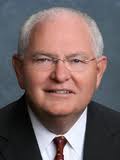If you think the school choice debate in Florida is all us vs. them, maybe you’re not listening carefully enough. Here are three examples just from the past few days.

At Monday’s Senate Education Committee meeting, Sen. Bill Montford, a Democrat who heads the state superintendents association, introduced a bill that would give school districts the freedom and flexibility to create charter-school-like “innovation schools.” Along the way, he said this:
“We know that the vast majority of our charter schools in the state have done a good job. Usually what you hear of is those who don’t. But that’s like any – in public school, you hear about the bad stories. But we’ve learned a lot over 15 years. The charter schools have set the pace, if you will, for a lot of innovations and creative efforts. And they’ve been able to do that because they’ve been allowed to be creative. They haven’t been burdened quite frankly with some of the state rules and statutes.”
The only member of the public to comment at the hearing was Jim Horne, a former education commissioner under Jeb Bush who now heads the Florida Charter School Alliance. Both the alliance and Associated Industries of Florida, for whom he lobbies, support the bill, he told the committee. Then he said this:
“This is sort of a great partnership where we can benefit from what we’ve learned. We know charters started 15 years ago to be innovative, free from some of the bureaucracy. And we think districts ought to have that same opportunity, to be able to innovate and be able to be creative outside of the bureaucracy and some of the regulations that we hear choke innovation.”
The bill passed unanimously. But neither Montford nor Horne’s comments made the papers, which is too bad. Their positions not only made sense, but cut against the stereotypes that dog both the “education establishment” and the “school choice crowd.” Beyond the political theater, there’s a lot of that going on.
Here’s another example. The Ledger reported Tuesday that the Polk County School District may convert an elementary school and a middle school in Lake Wales into a K-12 arts magnet. The two schools are the only ones in Lake Wales that are not part of that community’s charter school system. So how did the charter system respond?
“It’s a good thing; it’s not a bad thing,” said its superintendent, Jesse Jackson. The charter system had considered offering more arts classes at its high school to pull in some of the arts students at the middle school. But “if they are going to do it and they are going to fund it, then we don’t have to pursue it.”
The superintendent’s comments are in line with the views of many school choice supporters. It’s not either-or. It’s whatever works. With little fanfare, a good number of districts are stepping up with expanded, quality options. Their efforts should be more widely recognized.
One last example: The school choice rally Wednesday at the Capitol in Tallahassee.
For the first time, choice supporters from all camps came together. Not just voucher parents. Or charter parents. Or magnet parents. All of the above. Many parents – particularly low-income parents, who dominated the rally – don’t dwell on distinctions between public and private.
I talked to a number of parents at the rally who had kids in neighborhood schools and choice schools. Most of them were happy with both. But they were especially happy they had options. For that, some of them, like Regina Davis, were willing to step on a little patch of common ground.
Davis has three children in Miami magnet schools, but supports all choice sectors. She also said she was a lifelong Democrat and fan of President Obama.
“But I’m a concerned parent first. If that makes me conservative, so be it.”


